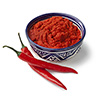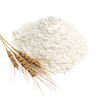Sign In Chef

By using our free meal planner (and the rest of spoonacular.com) you have to agree that you and only you are responsible for anything that happens to you because of something you have read on this site or have bought/cooked/eaten because of this site. After all, the only person who controls what you put in your mouth is you, right?
Spoonacular is a recipe search engine that sources recipes from across the web. We do our best to find recipes suitable for many diets — whether vegetarian, vegan, gluten free, dairy free, etc. — but we cannot guarantee that a recipe's ingredients are safe for your diet. Always read ingredient lists from the original source (follow the link from the "Instructions" field) in case an ingredient has been incorrectly extracted from the original source or has been labeled incorrectly in any way. Moreover, it is important that you always read the labels on every product you buy to see if the product could cause an allergic reaction or if it conflicts with your personal or religious beliefs. If you are still not sure after reading the label, contact the manufacturer.
We also attempt to estimate the cost and calculate the nutritional information for the recipes found on our site. Again, we cannot guarantee the accuracy of this information. Additionally, our nutrition visualizer that suggests that you limit sodium, sugar, etc., and get enough protein, vitamins, and minerals is not intended as medical advice. Similarly, our health tips are based on articles we have read from various sources across the web, and are not based on any medical training. The team behind spoonacular does not possess any medical qualifications and the information may be found to be incorrect or out of date based on future research. If you need help planning your diet or determining which foods (and recipes) are safe for you, contact a registered dietitian, allergist, or another medical professional.
Spoonacular is not responsible for any adverse effects or damages that occur because of your use of the website or any information it provides (e.g. after cooking/consuming a recipe on spoonacular.com or on any of the sites we link to, after reading information from articles or shared via social media, etc.)
×$3.97 per serving

1 likes

Ready in 45 minutes

Spoonacular Score: 83%
If you want to add more dairy free recipes to your repertoire, Chicken and lentil stew with cumin pitta might be a recipe you should try. This recipe serves 2. One portion of this dish contains about 65g of protein, 15g of fat, and a total of 887 calories. For $3.97 per serving, this recipe covers 49% of your daily requirements of vitamins and minerals. It works well as a rather expensive main course for Autumn. 1 person has tried and liked this recipe. It is brought to you by Foodista. If you have tomato puree, strong flour, harissa, and a few other ingredients on hand, you can make it. From preparation to the plate, this recipe takes roughly 45 minutes. Overall, this recipe earns an amazing spoonacular score of 89%. Try Cumin Lentil Barley Stew, Lentil & Chicken Stew, and Italian Lentil & Chicken Stew for similar recipes.
Stew can be paired with Cabernet Sauvignon, Chablis, and Malbec. Full-bodied red wines like malbec and cabernet sauvignon are the perfect accompaniment for beef stew. Fish stew probably calls for a white wine, such as chablis. The House of Independent Producers HIP Cabernet Sauvignon with a 5 out of 5 star rating seems like a good match. It costs about 17 dollars per bottle.
 Dark, garnet color. Aromas of dark toast, smoke, clove, peppermint, wild blackberry and plum, with just a touch of dark cocoa powder. The palate is pleasantly rustic, but with a full mid-palate and a lingering dark cherry finish with just a touch of minerality. Fruit was predominately sourced from The Sagemoor Farms Vineyard in the Columbia Valley AVA. The must was pumped over for 8 days and pressed to tank, where it underwent malo-lactic fermentation. The wine was fermented to dryness on 100 % American Oak and aged on 100% French oak. It was 100% barrel aged for 8 months. Ready to drink now, this wine has the structure to age for 5 to 10 more years .
Dark, garnet color. Aromas of dark toast, smoke, clove, peppermint, wild blackberry and plum, with just a touch of dark cocoa powder. The palate is pleasantly rustic, but with a full mid-palate and a lingering dark cherry finish with just a touch of minerality. Fruit was predominately sourced from The Sagemoor Farms Vineyard in the Columbia Valley AVA. The must was pumped over for 8 days and pressed to tank, where it underwent malo-lactic fermentation. The wine was fermented to dryness on 100 % American Oak and aged on 100% French oak. It was 100% barrel aged for 8 months. Ready to drink now, this wine has the structure to age for 5 to 10 more years .
» Get this wine on Amazon.com






















































Read the detailed instructions on Foodista.com – The Cooking Encyclopedia Everyone Can Edit